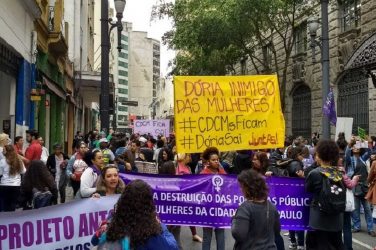Brazilian President Michel Temer will propose legislation to lift restrictions on foreign ownership of airlines and agricultural land in Brazil as he strives to pull the economy out of a two-year recession, government sources said on Monday.
Temer’s conservative government plans to send Congress a bill allowing 100% foreign ownership of airlines, though investors will be obliged to help expand regional flight services, sources said.
The government will soon propose a bill lifting a ban on foreign investors buying agricultural land in Brazil, on the condition that 10% of any purchase is destined to land reform to benefit landless farmers and peasants, said a presidential aide.
Temer last year vetoed an aviation bill that would have allowed full foreign ownership of local airlines in an agreement with senators who wanted inclusion of measures to boost regional aviation. The new draft will do just that.
“The initial idea is to reopen regional routes that were abandoned so that they get regular flights again.”
Foreign companies currently can hold up to a 20% stake in Brazilian airlines. US carrier Delta Air Lines Inc has 9.48% of Gol Linhas Aéreas Inteligentes SA, Brazil’s largest domestic airline.
Counting international routes, the main airline operating in Brazil is TAM, which merged with Santiago, Chile-based Latam Airlines Group SA, to become Latin America’s largest carrier.
Two other carriers, Avianca Brasil and Azul Linhas Aéreas, are controlled by foreign owners with Brazilian citizenship.
Attracting investors to buy into Brazilian airlines might not be easy due to jet fuel taxes and falling domestic traffic due to the recession. Despite huge market shares, Brazilian carriers have struggled to make a profit.
Plans to open up land to foreign purchases again, however, are bound to draw plenty of investors in Brazil’s expanding agribusiness industry that is seeking new partners.
Brazil restricted the sale of land to foreign investors in 2010 due to concerns that countries such as China could take control of large segments of arable land in the midst of a super commodity boom.
Companies in Brazil’s commodities sector have pushed to review the rules to allow more investment to flow into the country, especially in the pulp, paper and ethanol sector.
Deficit
Brazil’s central government registered a primary budget deficit of 154.255 billion reais (US$ 49.40 billion) in 2016, meeting its target but recording a third consecutive annual deficit that reflects the dire state of the country’s finances. In December, the country posted a primary deficit of 60.124 billion reais (US$ 19.25 billion).
The central government, which includes federal ministries, social security and the central bank – had been expected to post a deficit of 71.9 billion reais. In November, the central government recorded a deficit of 38.35 billion reais.
Finance Minister Henrique Meirelles said that the 2016 result was better than expected and that the country should resume generating budget surpluses again after approving a spending ceiling last year.
The bank’s chief, Ilan Goldfajn, also commented there is room for additional cuts to Brazil’s benchmark interest rate, bringing them towards a neutral level.
Brazil’s central bank surprised markets with a larger-than-expected 75-basis-points cut to its benchmark Selic rate to 13.00% on Jan. 11, as the worst recession in Brazilian history threatens to stretch into a third year.
“We think there is room to cut the interest rate towards a neutral interest rate, which is lower than what we have today,” Goldfajn said. “So we know what direction (to move the rate) and that there is room to do so, but exactly what that number is, we don’t know.”
Asked about the Brazilian real currency, Goldfajn said he “was not concerned”.
The recession, the worst in Brazilian history, has left millions unemployed and bankrupted hundreds of companies, raising pressure on Goldfajn to lower rates, which rank among the world’s highest.
Goldfajn said there had been no signs yet of a shift in capital inflows to Brazil following the election of US President Donald Trump.
“We haven’t felt it, but we’re in a moment of uncertainty because we don’t know exactly what the impact will be of the new policies,” Goldfajn said.
Mercopress












